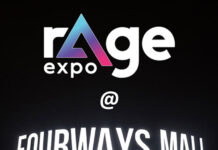With advertisers, particularly retailers, allocating a larger share of their ad spending to digital channels, many are debating how they can best access the skills and resources they need to execute their campaigns: Should they build their own in-house digital teams or continue to outsource most of the work to agencies?
As Ewoudt Cloete, the senior manager of Digital Operations at Game, argues in a recent article, a hybrid approach is likely to be the best choice for most brands. I agree with his view that in-house and agency resources both have a valuable role to play, and I wanted to elaborate on how brands can achieve the best of both worlds.
Let’s start by considering why a brand would want to work with an agency — which comes down to its deep specialisation in digital marketing and technology. A brand could hire an internal campaign manager for a lower salary than it might pay in agency fees each month. However, it’s unlikely that they would perform at the same level as an agency team that offers dozens of years of combined digital marketing experience.
What’s more, there is a significant risk in hiring a small team or even a single person to oversee the brand’s digital strategy. If a key person leaves or even takes a holiday, it could derail the company’s campaigns. Agencies have larger teams and thus are not dependent on a single person to keep things running smoothly.
Benefitting from a mix of skills
An agency team would generally include technical professionals, strategic thinkers and campaign managers, offering a depth of expertise that few companies can afford to build inhouse. Because digital is their only job, they are immersed in the latest trends and best practices in the digital landscape. As they learn new tactics, they have the opportunity to test and apply them across multiple clients and continually optimise the results.
This gives specialists at an agency a bit of an advantage over inhouse resources because they are learning every day due to wider exposure of digital results across their portfolio of clients. A thinly stretched in-house resource may, by contrast, struggle to keep up with the latest trends, platforms and tactics in a fast-moving market. What’s more, agencies can spread the costs of hiring expensive resources across multiple clients, especially the technical talent needed for occasional or once-off requirements.
Without an agency’s economies of scale, brands may find it prohibitively expensive to hire in-house skills in fields such as data management, integration, application programming interfaces, attribution modelling, offline conversion tracking and automated reporting. With an agency, they can pay for the skills when they’re needed rather than paying steep salaries to in-house resources.
Digital agencies often benefit from better rates for premium media sponsorship packages or private marketplace deals because they have higher collective spend across digital media channels. This enables them to pass on more favourable rates than a brand can get by going directly. Agencies also often get better support from digital platforms based on their certification and spending levels with the larger platforms.
The role of the inhouse team
On the flipside, agencies will not have the same insight into the nuts-and-bolts of a business and its wider marketing strategy because they’re so focused on digital capabilities. Only someone who works with the product range every day will know when to hit the brakes on marketing low inventory items and when to launch specials to keep momentum going for a hot product, for example.
And an agency will never understand the brand or how different company divisions work together as well as an internal resource. Another key consideration in a world where first-party data is key to marketing success and subject to stricter data privacy regulation is who owns and controls the data. Oversight of this important resource should be kept in-house.
Given these pros and cons of in-house and outsourced digital resources, it’s clear that they complement each other. Internal resources can oversee day-to-day digital requirements, while agency experts and campaign managers fill the gaps in their technical and digital strategy capabilities. An ideal combination is to have an in-house digital expert taking charge of the business strategy, working in partnership with a digital agency strategist who oversees digital strategy. If these two people can work well together, a brand has a winning formula.




















































































